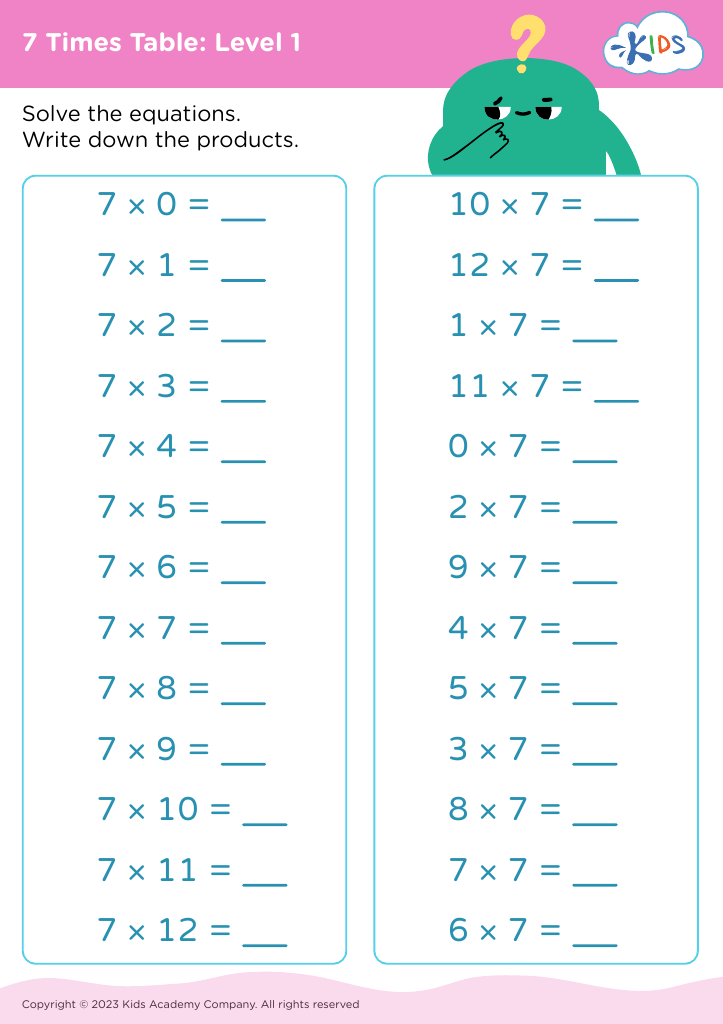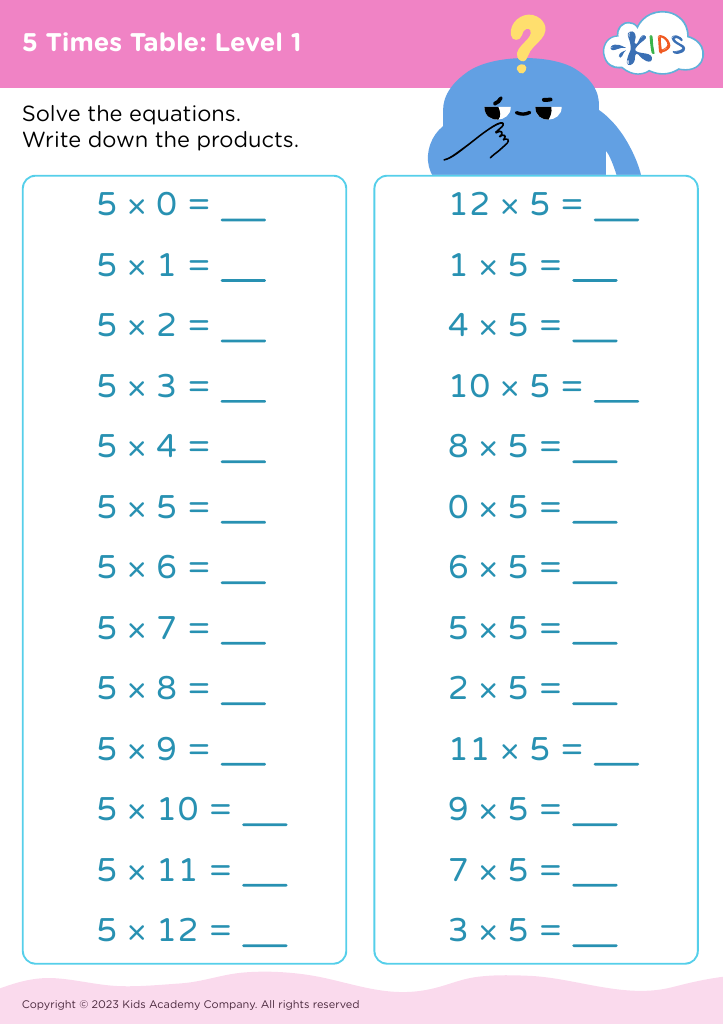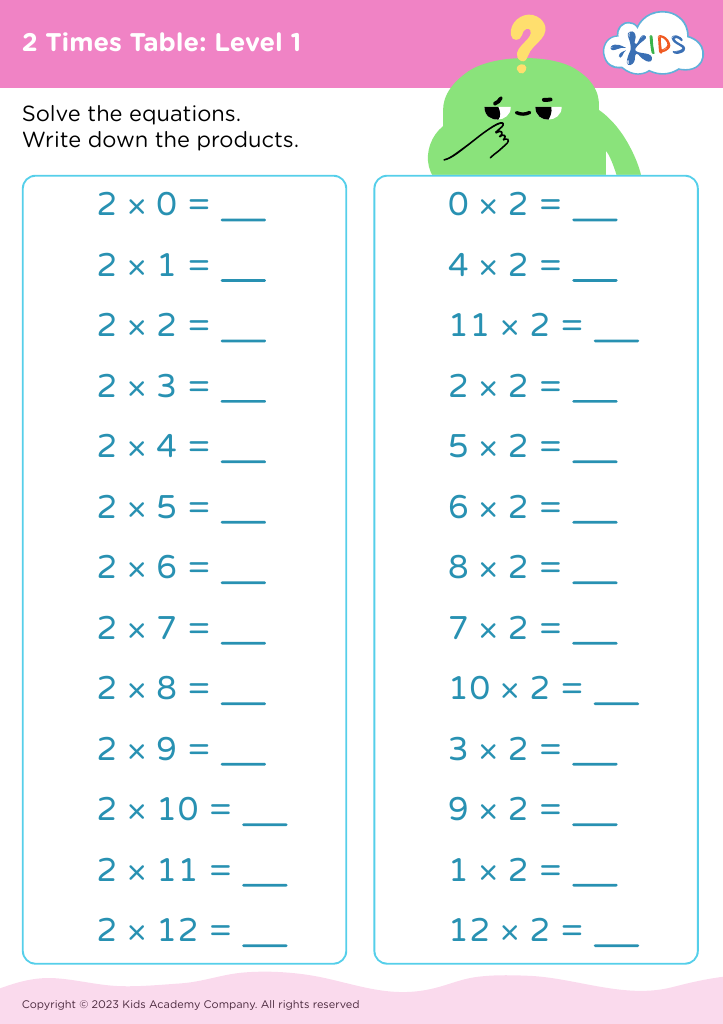Understanding times tables Basic Times Tables up to 12 Worksheets for Ages 4-9
3 filtered results
-
From - To
Discover our engaging "Understanding Times Tables" worksheets designed for children aged 4-9. These resources make learning essential multiplication skills fun and accessible, focusing on basic times tables up to 12. Our interactive worksheets encourage hands-on practice and conceptual understanding, ensuring students build a strong foundation in math. Perfect for classroom use or home learning, these activities are crafted to cater to varying learning styles, enhancing both confidence and competence. Help your child master multiplication in a playful and supportive environment. Explore our exciting worksheets and watch them thrive in their mathematical journey today!
Understanding basic times tables up to 12 is crucial for children aged 4-9, as it lays the foundation for their mathematical abilities and overall academic success. Mastery of times tables enhances children's number sense, allowing them to recognize patterns, develop problem-solving skills, and build confidence in their abilities. As they engage with multiplication, they begin to understand more complex math concepts, which prepares them for higher-level mathematics in later grades.
For parents and teachers, emphasizing times tables promotes not only mathematical literacy but also supports critical thinking and cognitive development. With a solid grasp of multiplication, children can quickly tackle division, fractions, and even some aspects of algebra in the future. Additionally, fluency in times tables fosters independence in math-related tasks, enabling children to complete homework and engage in real-world applications with ease.
Encouraging young learners to practice and master their times tables can also enhance their enjoyment of math, making it less daunting and more accessible. By nurturing these skills early on, educators and parents play a pivotal role in fostering positive attitudes toward mathematics, ultimately paving the way for success in future academic endeavors.














